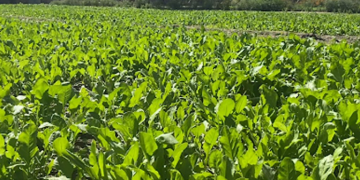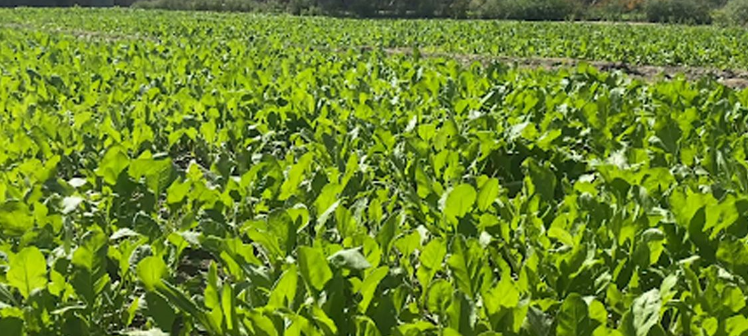A recent investigation by OnlyMyHealth Hyperlocal has revealed an alarming reality: vegetables grown on the banks of the Yamuna River are contaminated with dangerous heavy metals. This discovery highlights serious food safety issues for local communities and requires immediate intervention to reduce health risks.
The investigation began in response to reports of harmful chemicals, heavy metals and toxic substances in vegetables grown in the floodplains of the Yamuna River. Major crops grown in this region include spinach, radishes, beans, pumpkin, okra, cilantro and cauliflower. Farmers in these areas have been growing vegetables along the banks of the river for many years, taking advantage of the fertile soil and abundant water supply.
To ensure the safety of these vegetables, samples of spinach and radishes were collected directly from the fields and sent for laboratory testing. The results were alarming. Tests confirmed the presence of heavy metals such as lead (Pb), cadmium (Cd) and nickel (Ni) in quantities exceeding permissible limits.
Key findings from laboratory reports:
Radish samples: High levels of lead (Pb), cadmium (Cd) and nickel (Ni) were detected. Lead, a potent neurotoxin, can cause serious health problems, especially in children, including cognitive impairment and developmental delays. Exposure to cadmium has been linked to kidney damage and bone fractures, while nickel can cause skin allergies and breathing problems.
Spinach samples. As with radishes, spinach samples also contained elevated levels of lead (Pb), cadmium (Cd) and nickel (Ni). The presence of these heavy metals in leafy vegetables is of particular concern due to their ability to bioaccumulate, which can increase health risks over time.
These results raise serious concerns about the safety of consuming vegetables grown in this region. Long-term exposure to heavy metals can lead to chronic health problems, including neurological disorders, kidney damage and an increased risk of cancer.
Causes of pollution:
Pollution of the Yamuna River and its surrounding agricultural lands occurs primarily due to industrial discharges, untreated sewage and runoff from urban areas. Heavy metals from these sources accumulate in soil and water, eventually entering the food chain through crops irrigated with contaminated water.
Immediate measures required:
Enhanced Monitoring: Regular monitoring of soil and water quality in agricultural areas near the Yamuna River is critical. Establishing strict standards for acceptable levels of heavy metals in agricultural products is necessary to ensure food safety.
Remediation efforts: Implementing soil and water restoration techniques such as phytoremediation (using plants to absorb pollutants) and advanced filtration systems can help reduce heavy metal levels in the environment.
Farmer education: Educating farmers about the sources and dangers of heavy metal pollution and promoting safer farming practices can reduce risks. It is essential to encourage the use of treated and clean water for irrigation.
Policy measures: Government policies aimed at controlling industrial discharges and improving wastewater treatment infrastructure are vital. Strict adherence to environmental standards can prevent further pollution of water bodies.
The presence of heavy metals in vegetables grown near the Yamuna River is a serious public health problem that requires immediate attention. By implementing comprehensive monitoring, corrective action, and education strategies, we can protect the health of local communities and ensure the security of the food supply. It is essential that both government and non-government organizations work together to solve this problem and prevent future pollution.































